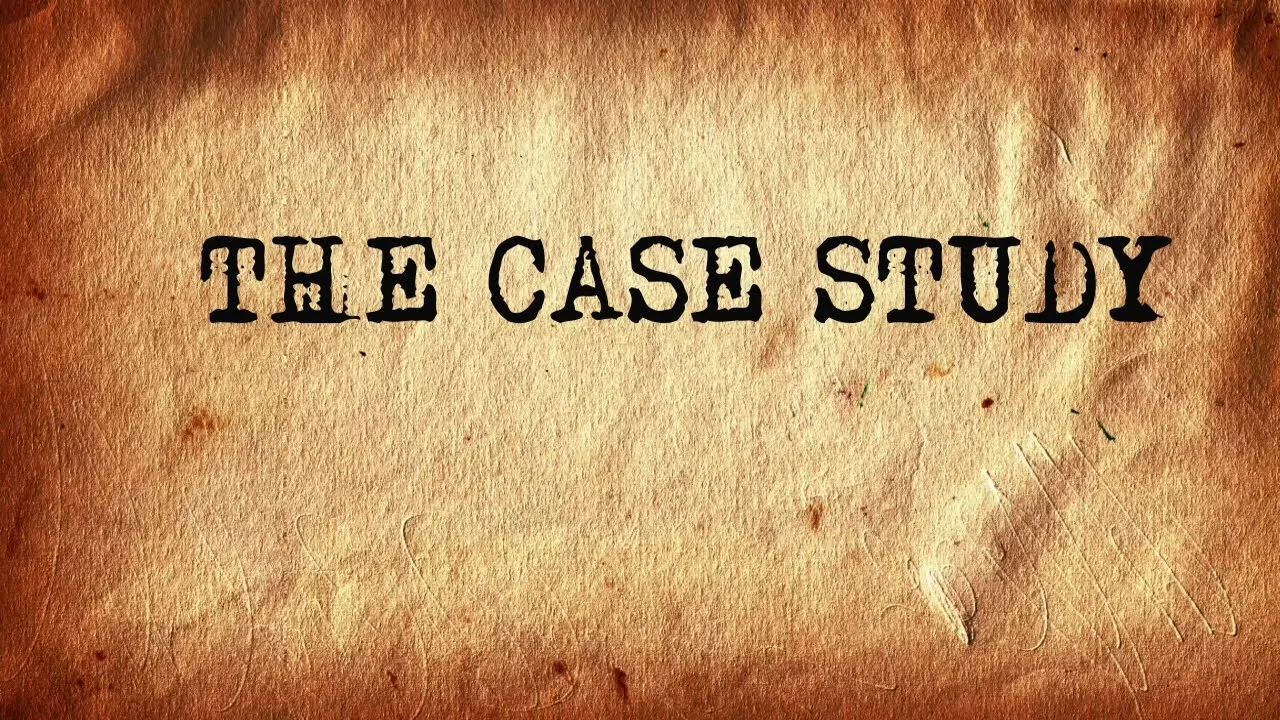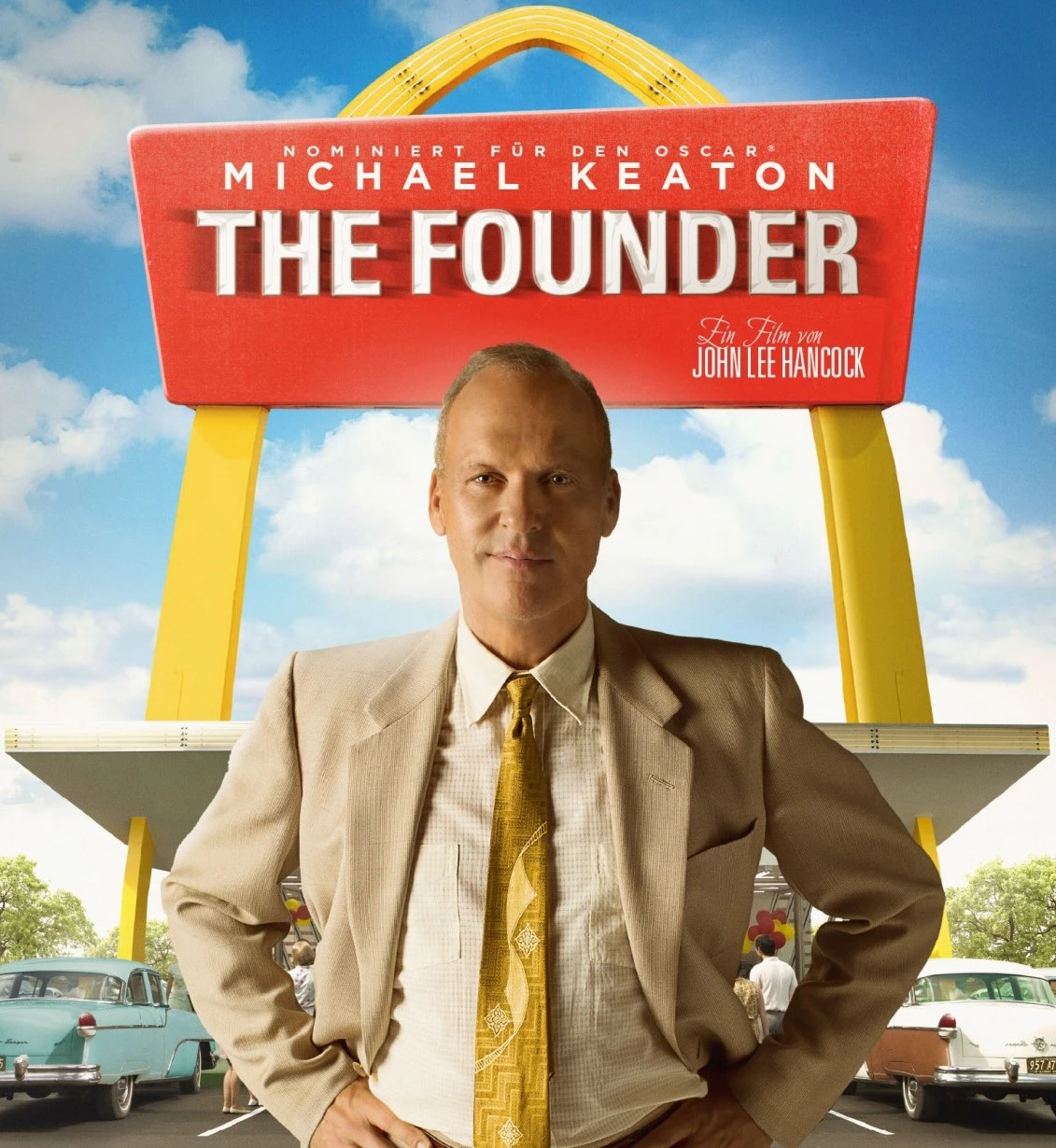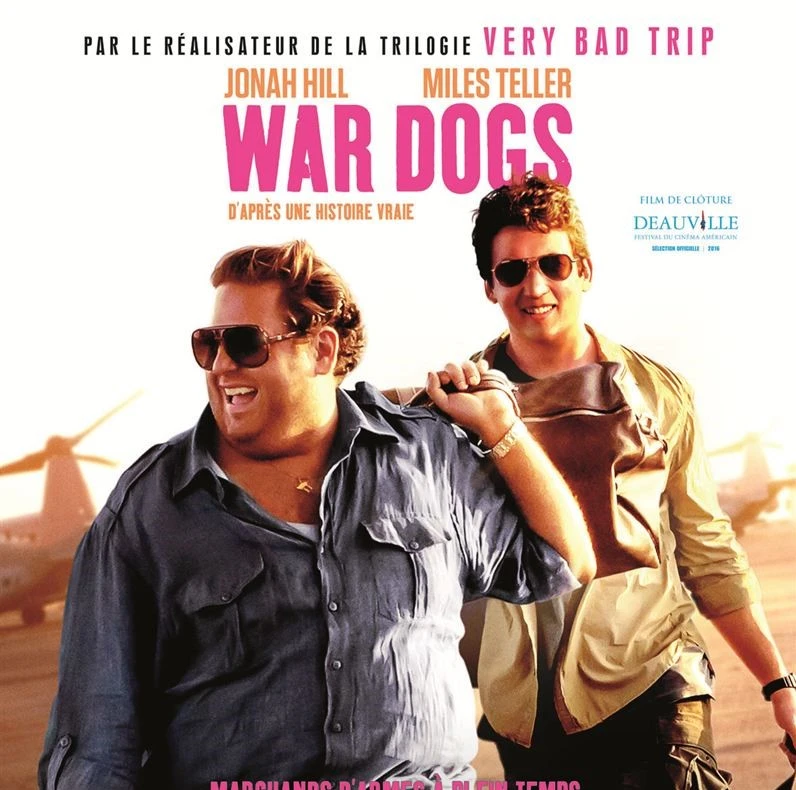SME Strategies to Access New Markets: Accessing New Markets Case Studies
Guide to Improving Access to Market Opportunities from Case Studies
Understanding how to access market case studies is vital for businesses seeking to thrive in competitive landscapes. These real-world examples offer invaluable insights into industry trends, consumer behavior, and successful strategies employed by leading companies. By studying case studies, businesses can identify opportunities, anticipate challenges, and refine their own approaches to maximize success. Learn the importance of leveraging market case studies to inform decision-making, refine marketing strategies, and gain a competitive edge in today's dynamic business environment. Explore how accessing case studies can empower your business to make informed decisions and achieve sustainable growth.
How to access market case studies

Written by: Malose Makgeta
MBA with 20+ years experience in SME development and funding. LinkedIn Profile
Access to Market Case Study Movies: The Founder, War Dogs and Moneyball
- The Founder (McDonald's): The first restaurant opened by the McDonald brothers was not initially successful, leading them to redesign it into what we now recognise as McDonald's. Ray Kroc, who joined later, hadn't perfected the initial business model, nor did he have a detailed business plan. Both the McDonald brothers and Ray faced near failure because they lacked a business plan. Fortunately, they had the resources to delve deep into the business without one. If you have the resources, you can start without a business plan; otherwise, a business plan is critical.
- War Dogs (AEY): AEY secured a $300 million contract from the Pentagon to arm America's allies in Afghanistan without a business plan. In contrast, David Packouz started his bedsheet business with his savings, but without a business plan, only to discover there was no market, leading to the failure of his venture.
- Moneyball (Oakland A's): Billy Beane built a successful team without a traditional business plan; instead, he made decisions as he went along and eventually stumbled upon Peter Brand, who believed in the predictive analytics system. This approach led the Oakland A's to a 20-game winning streak, breaking records in American baseball history.
- Explore further insights on business plan development lessons derived from our case study movies: The Founder, War Dogs and Moneyball by clicking here.
CONTEXT
How to access markets is a process of identifying and obtaining commitment from new customers. It is about entering the market, attracting new consumers by providing them with new products. How to access markets is a set of activities designed to persuade customers that your product and services will be beneficial while posing little risk. The skills programme provides entrepreneurs and business managers with a platform and tools that makes it simple and quick to access markets. It also includes a training and mentorship programme that prepares and supports entrepreneurs in preparing proposals and gaining access to market on their own.
How to access market case studies lessons from case studies:
Lessons from The Founder - McDonalds

Movie Description
The Founder is one amazing movie and is a must watch for every entrepreneur. It not only gives you life lessons and but also few path breaking business lessons. The Founder is story of Ray Crock. How a 52-year-old sales man turned two brothers (McDonald Brothers) small eatery into the world’s biggest restaurant business. McDonald brothers had invented the speedy system a process to deliver food in seconds but couldn’t develop business beyond their one restaurant. This is Ray Crock comes re-imagines the whole fast food business and created the McDonald Corporation we see today.
Expected Outcomes
The Founder is jam-packed with practical business advice. It pulls back the curtain to reveal the secrets of Ray Krocs transformation of McDonalds into one of the worlds largest fast food restaurants. Entrepreneurs and business owners will discover: “Nothing in this world can take the place of persistence. Talent wont; nothing is more common than unsuccessful men with talent. Genius wont; unrewarded genius is practically a cliché. Education wont; the world is full of educated fools. The purpose of this case study is to provide a practical case study on how to build a business in the manufacturing sector—that is, a business that takes raw materials and adds value to them to produce a product.
Rational
Ray Kroc, a 52-year-old over-the-hill salesman struggling to sell multimixers, turned two brothers innovative fast food eatery, McDonalds, into the worlds largest restaurant business through a combination of ambition, persistence, and ruthlessness. If you are a small business owner looking to learn about scaling, franchising, and brand building, McDonalds is the one business to look to as a reference, as they have done this incredibly well. They are a true American business success story and icon. The story of how McDonalds came to be is told in a new film, The Founder, and we learn the true story of Ray Kroc, the traveling salesman who is credited with making McDonalds what it is today, and its original founders, Richard and Maurice McDonald.
Key Lesson
None
Click here and draft your business plan in minutes
To request tailored accredited training and enterprise development services, contact us at businessplan@superdealmaker.com.
Get List for Funding Opportunities in Minutes, Click Here
To request tailored investment banking services, contact us at businessplan@superdealmaker.com.
Marketing Lessons from "The Founder"
Lesson 1: Vision and Persistence: The movie emphasises the importance of having a clear vision and persistence in marketing. Businesses should have a compelling vision and the determination to pursue it despite challenges, setbacks, and naysayers.
Lesson 2: Branding and Differentiation: "The Founder" showcases the significance of branding and differentiation in marketing. Companies should focus on creating a unique brand identity, developing a memorable brand story, and finding ways to differentiate themselves from competitors.
Lesson 3: Customer-Centric Approach: The film highlights the importance of a customer-centric approach in marketing. Businesses should prioritise understanding customer needs, preferences, and pain points, and tailor their marketing strategies to deliver exceptional customer experiences.
Lesson 4: Market Research and Adaptation: Like the characters in the movie, marketers should conduct thorough market research to understand market dynamics and consumer trends. This knowledge can help businesses adapt their marketing strategies, products, and services to stay relevant and meet customer demands.
Lesson 5: Scaling and Standardisation: "The Founder" highlights the importance of scaling and standardisation in marketing. As businesses grow, they should focus on scaling their operations while maintaining consistent quality, brand identity, and customer experience across multiple locations or channels.
Lesson 6: Strategic Partnerships: The movie teaches the value of strategic partnerships in marketing. Businesses should seek mutually beneficial partnerships with suppliers, distributors, influencers, or complementary brands to extend their reach, access new markets, and leverage each other's strengths.
Lesson 7: Effective Marketing Communications: Effective marketing communications play a vital role, as showcased in "The Founder." Marketers should develop compelling messaging, use persuasive storytelling techniques, and utilize various channels to reach and engage their target audience.
Benefits of Effective Access to Market Strategies: Solve Customers' Problems
When a company provides what customers require, it does not need to persuade or seek customers. Demand is created when the right product is available. Drive-in restaurants were already popular in America, but the lines were usually long, and the food was frequently misassembled when it arrived. At McDonald's, this was not the case. In comparison to many other restaurants visited by Ray Kroc, McDonald's was able to serve high-quality food at lightning-fast speed and low cost without sacrificing quality. Despite long lines at McDonald's, customers were pleased with the food and service.
The changing marketplace has presented both opportunities and challenges for McDonald's. Indeed, by the early 2000s, the once-gleaming Golden Arches had lost some of their luster as the company struggled to adapt to changing consumer lifestyles. While McDonald's remained the most visited fast-food chain in the country, its sales growth slowed and its market share fell by more than 3% between 1997 and 2003. In 2002, the company reported its first quarterly loss.
Effective market penetration techniques for South African SMEs facing competition
"You can learn all you ever need to know about the competition's operation by looking in his garbage cans. I am not above that, let me assure you, and more than once at two o'clock in the morning I have sorted through a competitor's garbage to see how many boxes of meat he'd used the day before, how many packages of buns, and so forth.
"My way of fighting the competition is the positive approach. Stress your own strengths, emphasise Quality, Service, Cleanliness, and Value, and the competition will wear itself out trying to keep up. I've seen it happen many times."
"My attitude was that competition can try to steal my plans and copy my style. But they can't read my mind; so I'll leave them a mile and half behind."
"The thing that has made this country great is our free enterprise system. If we have to resort to this - bringing in government - to beat our competition, then we deserve to go broke. If we can't do it by offering a better fifteen cent hamburger, by being better merchandisers, by providing faster service and a cleaner place, then I would rather be broke tomorrow and out of this business and start all over again in something else."
McDonald's generates revenue by leasing McDonald's-owned properties to franchisees who use the company's product (fast food). This frequently carries a high markup. This model has the benefit of having a much more stable and predictable revenue stream (rent and royalty income received from franchisees). On the other hand, the operating costs are measurably lower, making the road to profitability easier. Because it has control over the land and long-term leases, McDonald's can use its market position to its advantage when negotiating deals. Similar to a subscription, the franchisee in this case pays a set sum each month as the subscriber.
Mastering market penetration for South African SMEs
Some of the most successful business models are created by approaching problems and situations with a fresh eye. When Ray Kroc was facing financial difficulties, he met Harry Sonneborn, a financial expert who helped him see that he was not in the food-service business, but rather in the real-estate business. Harry showed him another way to profit from the McDonald brothers' deal on selling hamburgers and franchisees. This new method entailed forming a real estate company that would purchase (or lease) the land on which all McDonald's would be built.
Lessons from War Dogs - AEY

Movie Description
War Dogs is based on one of those true stories that no one would actually believe if it were written as fiction. In the mid-’00s, two kids named Efraim Diveroli and David Packouz managed to secure a $300 million contract with the United States government to supply allied forces in Afghanistan with arms and ammunition. They then embarked on a globetrotting misadventure that saw them dealing with shady crooks and corrupt politicians and dangerous soldiers in the name of making a fortune. Most astonishingly, both men were twenty something stoners with no experience handling anything of this size or scope. As much as the film may diverge from the truth for the sake of cinematic drama, the core story remains jaw-droopingly true.
Expected Outcomes
There are several important lessons that any aspiring new entrepreneur can learn from Hollywoods portrayal of business in these business movies. Two friends embark on that journey, and they do what any excited real entrepreneur or business manager would do: they hustle, work like dogs, read and study all night, and have a do-whatever-it-takes attitude. If a deal is about to fall apart, they hustle even harder and manage to keep it together. The purpose of the case study is to provide a practical case study on how to build a business in the facilitated network sector, which makes money by allowing people to exchange information, products, and services.
Rational
Entrepreneurs are constantly learning on the job, from their peers to their idols, and, most importantly, from their own mistakes—the road to owning your own business is littered with lessons learned. However, learning some of these lessons before embarking on your own journey only makes the process easier. i.e. Cutting corners can be an expensive proposition - Finding the best deals can be wise but make sure that you consider long-term costs and the time that you might have to invest to fix problems.
Key Lesson
None
Effective Market Access Techniques: Lessons from "War Dogs"
Lesson 1: Identifying Profitable Opportunities: The movie highlights the importance of identifying profitable opportunities in the market. Just like the characters in the movie, businesses should conduct thorough market research to uncover lucrative niches and capitalize on them.
Lesson 2: Building Relationships: Throughout the film, the power of building strong relationships is emphasised. Businesses can learn the value of networking, fostering connections, and nurturing relationships with suppliers, partners, and customers.
Lesson 3: Adaptability and Flexibility: The protagonists in "War Dogs" had to adapt quickly to changing circumstances and navigate unexpected challenges. Similarly, businesses need to be adaptable and flexible in their marketing strategies to respond to market shifts and consumer demands.
Lesson 4: Understanding Legal and Regulatory Frameworks: The movie showcases the consequences of ignoring legal and regulatory frameworks in business operations. Companies should prioritise understanding and complying with laws and regulations to avoid legal troubles that can harm their reputation and bottom line.
Lesson 5: Effective Communication and Persuasion: The characters in the film were successful in persuading clients to choose their services through effective communication. Businesses should focus on honing their communication skills to effectively convey their value proposition, build trust, and win over customers.
Lesson 6: Branding and Differentiation: In a competitive market, branding and differentiation play a crucial role. "War Dogs" demonstrates the importance of establishing a unique brand identity and differentiating oneself from competitors to attract customers and stand out in the marketplace.
Lesson 7: Risk Management: Risk management is a significant aspect of business, as highlighted by the risky ventures undertaken in the movie. Companies should carefully evaluate risks, develop contingency plans, and have risk mitigation strategies in place to protect their interests.
AEY Inc., was a major weapons contractor for the U.S. Department of Defense. The U.S. government suspended AEY for violating its contract after AEY provided Chinese ammunition and attempted to hide the origins by repackaging it as being from Hungary, thus violating the American arms embargo against China.
How SMEs can capitalize on market opportunities
The world engaged in a protracted and significant arms race during the Cold War. In preparation for a war with the West, Eastern Europe had millions of weapons stocked up. Arms dealers started moving these enormous quantities of weapons once the Cold War ended and the immediate threat of violence subsided. The ensuing sales created the "gray market," where legitimate government- sanctioned buyers and non-state actors (such as militia or terrorist groups) could obtain weapons through illicit sales by foreign governments. "For the purpose of arming the militias it was establishing in Afghanistan and Iraq, the Pentagon required access to this new aftermarket. The issue was that it couldn't enter such a shadowy underworld by itself. It required companies like AEY as proxies to carry out its dirty work."
Unlocking growth through market penetration
Diveroli began working as a teenager in a Miami one-room apartment during this time of intense arms trading. He tried to break into the field from the comfort of his couch, armed only with a laptop. On fbo.gov, also known as FedBizOpps, a government website where contracts are posted, he started browsing solicitations. With financial assistance from Ralph Slutsky, with whom he conducted business while working for his uncle, he initially made bids on modest contracts. By continuing to outperform major companies like Northrop Grumman, Lockheed, and BAE Systems, Diveroli had amassed a million-dollar fortune by the age of 18. Diveroli had "an appetite for risk and all-devouring ambition," to quote Rolling Stone.
Diveroli aimed to enter the "gray market" in this way. He was still a teenager when he rented a room in a Miami house owned by a Hispanic family and went to work on his laptop. fbo.gov, also known as "FedBizOpps," is the government website where contracts are posted. Diveroli quickly mastered the arcane jargon of federal contracts. His competitors were mostly large corporations such as Northrop Grumman, Lockheed Martin, and BAE Systems. Those businesses had entire departments devoted to selling to the Pentagon. Diveroli, on the other hand, had his own advantages: low overhead, a taste for risk, and all-consuming ambition.
Diveroli began by focusing on smaller contracts for items such as helmets and ammunition for US Special Forces. The deals were minor, but they provided AEY with a track record of "past performance," which the Pentagon requires of companies seeking to bid on large defense contracts. Diveroli received funding from a Mormon named Ralph Slutsky, a Utah machine-gun manufacturer who had previously worked for his father. Diveroli soon found himself with Pentagon contracts.
Diveroli knew how to win over the Pentagon's buyers, who were soldiers with little or no business experience, with a combination of charm, patriotism, and a keen sense of how to play to the military culture; he could say yes and no with the best of them. To get the inside scoop on a deal, he would call the contract official and pose as a colonel or even a general.
Packouz initially struggled to land his own deals. Contract bidding on fbo.gov was an art; closing a deal was a science. He once obsessively pursued a $8 million contract to supply SUVs to the State Department in Pakistan, only to lose the bid. But he eventually won a contract to supply 50,000 gallons of propane to a Wyoming Air Force base, earning a profit of $8,000. "A lot of suppliers didn't understand how to use FedBizOpps as well as we did," he says. "You had to read the requests religiously."
Normally, a small company like AEY would not have a chance at such a large defense contract. Diveroli and Packouz, on the other hand, had three advantages. First, the Bush administration launched its small-business initiative at the Pentagon, requiring that a certain percentage of defense contracts be awarded to firms such as AEY. Second, the fledgling arms dealers specialized in precisely the type of Cold War munitions sought by the Pentagon: they had the "past performance" required by the contract, and they could fill the order using the same supply lines Diveroli had established through Thomet. Third, the only requirement in the contract was that the ammunition be "serviceable without qualification.
There was only one explanation for the meteoric rise: Diveroli had radically underbid the competition. In private conversations, the Army’s contracting officers let AEY know that its bid was at least $50 million less than its nearest rival. Diveroli’s anxiety that his bid of nearly $300 million would be too high had failed to consider the corpulent markups employed by corporate America when it deals with the Pentagon. For once, at least, taxpayers were getting a good deal on a defense contract.
Unlocking Profitable Market Niches: Lessons from "Moneyball"
Lesson 1: Data-Driven Decision Making"Moneyball" emphasises the power of data-driven decision making in marketing. Businesses should leverage data analytics and market research to make informed decisions, identify trends, and optimise their marketing strategies for better results.
Lesson 2: Embracing InnovationThe movie showcases the need for innovation in marketing. Just as the characters in the film used unconventional strategies to challenge traditional norms, businesses should embrace innovative approaches, such as digital marketing, social media, and emerging technologies.
Lesson 3: Identifying Undervalued OpportunitiesLike the protagonists in "Moneyball," marketers should look for undervalued opportunities in the market. This involves identifying niche segments, untapped markets, or overlooked customer needs that can give businesses a competitive advantage.
Lesson 4: Leveraging Customer InsightsThe movie emphasises the importance of understanding customer insights to drive marketing success. Businesses should invest in market research, customer surveys, and feedback analysis to gain deep insights into customer preferences, behaviors, and needs.
Lesson 5: Building a Strong Team"Moneyball" underscores the significance of building a strong team for marketing success. Companies should focus on assembling a diverse team of talented individuals who bring different skills and perspectives to the table, fostering collaboration and innovation.
Lesson 6: Continuous Improvement and AdaptationIn the ever-evolving market landscape, "Moneyball" teaches us the importance of continuous improvement and adaptation. Marketers should be open to change, constantly evaluate and refine their strategies, and adapt to new trends and consumer preferences.
Lesson 7: Value for MoneyThe concept of getting value for money resonates throughout the movie. Businesses should focus on providing value to customers, whether it's through competitive pricing, superior product quality, or exceptional customer service.
Strategies to Overcome Market Rejections and Achieve Success
Any unconventional idea, no matter how good it is, may face initial rejection. Oakland A's scouts were initially dismissive, then hostile to Peter Brand's non-traditional approach to player scouting. The Athletics struggled early in the season, prompting critics to label the new approach a failure. Furthermore, Billy faced constant opposition from Oakland Athletics manager Art Howe.
Playing the game on your opponent's terms is no longer an option. It can only lead to disappointment and failure. Your company is very similar to the Oakland A's baseball team. If you're a start-up or a small-to-medium-sized business, you're probably dealing with some tight (and possibly unfair) resource constraints. If you want to grow and compete against competitors with much larger pockets, you must either level the playing field or completely change it. It is impossible to beat anyone if you insist on letting others dictate the terms. You must begin by thinking differently. What would need to change for you to have the upper hand? What can you do differently right now to achieve your goal? How can you adapt or change your approach to achieve your goals?
Seizing Market Access Opportunities
There are market access opportunities everywhere. There are issues everywhere. Often, it is our approach and ability to identify them that prevents us from solving genuine problems. By removing problem perception and assumption, you can discover the true problem, providing clarity and understanding. A well-defined problem frequently contains its own solution, which is usually quite obvious and straightforward. By properly defining problems, you make them easier to solve, which saves time, money, and resources.
Accessing new markets or expanding into existing ones requires critical thinking. The scouting staff of the Oakland A's is approaching the challenging situation with a narrow perspective and a business-as-usual attitude. Excellent scene in which Billy Beane repeatedly asks them to state the true problem they are attempting to solve. Organisations frequently lose their way by failing to recognise the true problem and continuing to do things in the same way they always have.
Leaders are able to get to the heart of the matter by asking probing questions. This requires a thorough understanding and awareness of the situation. In business and in life, it's critical to take a step back and ask: Are we solving the wrong problem? Problem definition is an important business skill. Determine the root cause of the problem before focusing on its resolution. In theory, it's straightforward. However, instead of getting distracted by short-term thinking, consider how you will fix it in the long run and break it down to find the best solution. Take care who you listen to... People who have been with the company longer than the furniture tend to be short-sighted, which can be more of a hindrance than a help. Determine and resolve the actual problem.
Join the Conversation: Share Your Thoughts on This Article
- I really liked how the case studies broke down the practical steps to entering new markets — it makes the whole process feel a lot more doable. For businesses trying to scale efficiently, using business process outsourcing like what’s offered at https://virtualcoworkers.com/services/business-process-outsourcing-services can actually help streamline operations while focusing on growth.
- I really liked how the case studies broke down the practical steps to entering new markets — it makes the whole process feel a lot more doable. For businesses trying to scale efficiently, using business process outsourcing like what’s offered at https://virtualcoworkers.com/services/business-process-outsourcing-services can actually help streamline operations while focusing on growth.
- I really liked how the case studies broke down the practical steps to entering new markets—it makes the whole process feel a lot more doable. For businesses trying to scale efficiently, using business process outsourcing like what’s offered at https://virtualcoworkers.com/services/business-process-outsourcing-services can actually help streamline operations while focusing on growth.
Add Your Comment Now!



